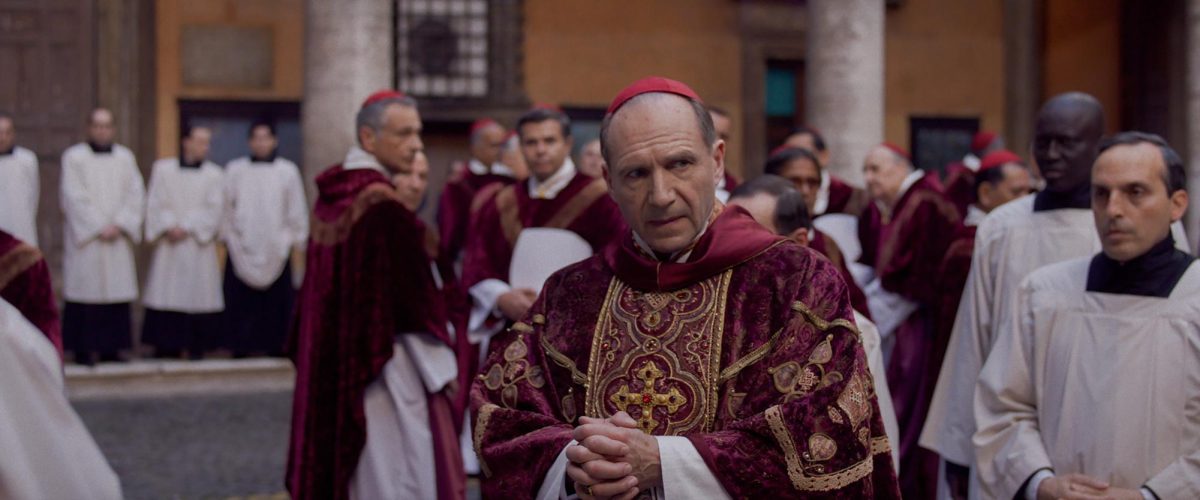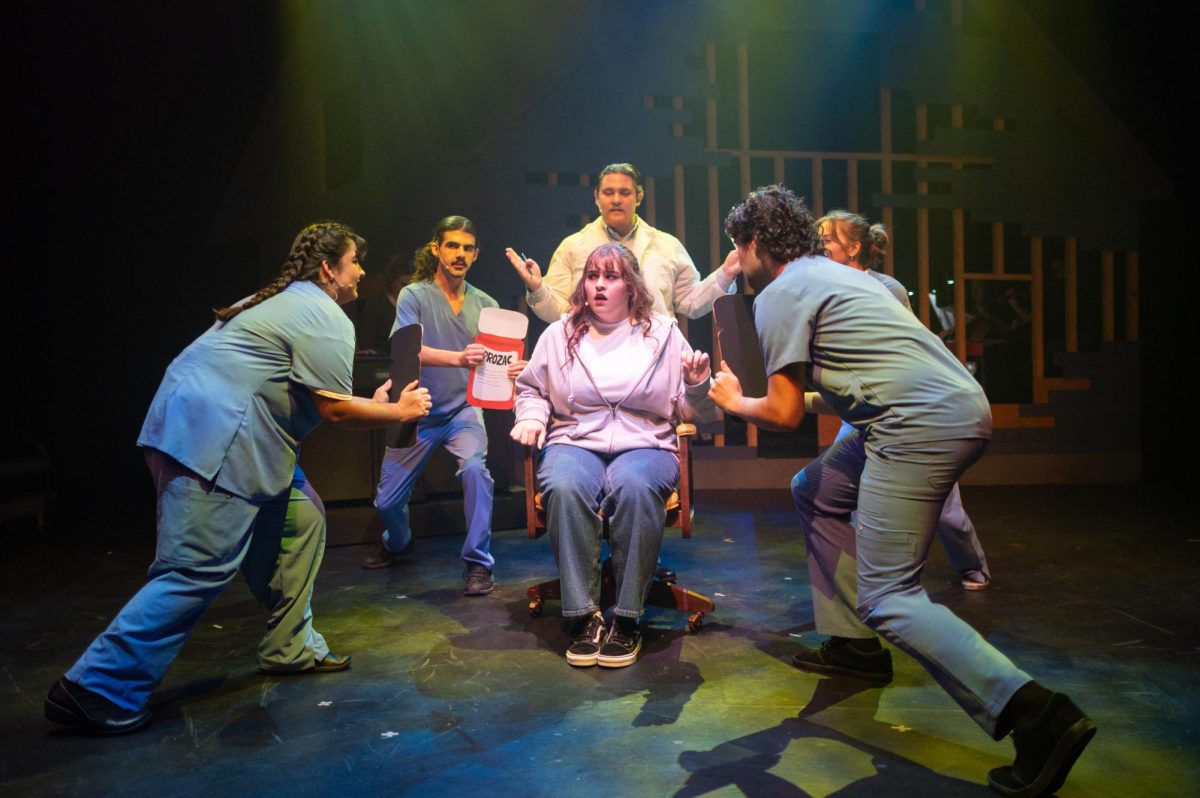“Conclave” plays like poetry; its vivid and striking imagery draws viewers in and its slow-burning suspenseful plot keeps them enveloped in the world put on hold after the pope passes in his sleep.
Directed by Academy Award-nominated Edward Berger, most notably known for “All Quiet on the Western Front,” and written by Peter Straughan, the film peels back the layers of the secretive process of the selection of the next pope of the Catholic Church.
Viewers are ushered through the movie by Cardinal Lawerence – played brilliantly by Ralph Fiennes – who has the grueling responsibility of overseeing the conclave.
The plot unfolds like a slow-baking mystery thriller. As several Cardinals battle for the papacy, morals, ideals and past mistakes are brought to the forefront.
Berger uses ceremonial costuming to not only bring the viewer more into this world behind closed doors, but also to create suspense. The costuming was captivating, truly a testament to how powerful attention to detail and historical realness costuming could be.
The cinematography was breathtaking – every frame playing like a renaissance painting. Shooting on sight in Rome offered a unique opportunity for realness and it paid off. The Sistine Chapel was recreated and the ceiling was accomplished with visual effects, but it looked very real. The camera followed after Cardinal Lawrence as he navigated the chaotic scramble for power.
The score was composed by the Academy Award-winner Volker Bertelmann – who won an Academy Award for his composing of “All Quiet on the Western Front.”. The score was used sparingly, but was very effective.
The score was used to ramp up the pace of the scene and heighten the suspense. Its classical style fit the Italian scenery and the tone of this suspenseful grab for power.
The film grapples with conversations and debates currently taking place in the Catholic Church. Each Cardinal moving for the throne represents a different component of this debate. As the Catholic Church in real life adopts more progressive stances on gender and sexuality there is a sharp backlash to this change.
Cardinal Bellini – played brilliantly by Stanley Tucci – fought for the Church to be a place for everyone. But Bellini’s ideals clashed with Cardinal Tedesco – played by Sergio Castelitto – who campaigned on keeping tradition in the Church.
Berger seeks to examine these conflicting ideas and the responsibility of religious institutions in this film. With a film that twists and turns every chance it gets, the final twist reframes the entire film.
However, the ending felt rushed and once the reveal happened there was no time to sit in the world and feel the consequences of the information that was just given. The film does an excellent job of picking up pace throughout the movie, but unfortunately, jumps the gun on the end and leaves you wanting more.
Regardless, I strongly recommend this film. I expect to see it in the Oscar race — potentially Ralph Fiennes for “Best Actor” — and I am ecstatic to see what more brilliant films Berger brings to us.
Please, Berger, don’t pull a Barry Jenkins and go do franchise work.
“Conclave” is now showing at Tinseltown.
Chris Hutton can be reached at [email protected].











